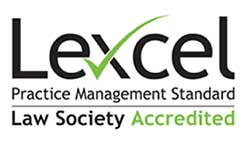An investigation by HM Revenue and Customs (HMRC) in relation to tax fraud can be an extremely stressful and challenging experience for individuals, their families, businesses and their employees. HMRC has extensive investigatory powers, being able to carry out both civil and criminal investigations when there are suspicions that tax has been evaded, left unpaid or undeclared, or when there is evidence of tax fraud. Prosecutions have risen significantly in recent years as the UK Government has provided increased funding for HMRC to target tax fraud.
If you are convicted of tax fraud, the impact can be extremely serious. The courts have the power to issue substantial financial penalties and long prison sentences, resulting in a criminal record and significant damage to your and your company’s reputation. If you are facing prosecution by HMRC for the best chance of success you should instruct reputable solicitors that specialise in HMRC prosecution defence. Here at Wilford Smith Solicitors ourCriminal Defence Lawyers have years of experience in conducting tax fraud cases, and have the required skills, knowledge and commitment to develop a robust defence strategy on your behalf.
HMRC’s role in the prosecution of tax fraud
HMRC’s main objective is to ensure the highest possible levels of compliance with the UK’s laws and tax regulations, both in respect of direct and indirect taxation. In England and Wales, HMRC carries out criminal investigations on tax evasion with a view to prosecutions being carried out as part of their general enforcement strategies. In many cases, HMRC will deal with instances of tax fraud by using civil fraud investigation proceedings due to the lower costs associated with carrying out this type of investigation. However, in cases where the fraudulent conduct involved is particularly serious, or where it is felt that there exists a need to send a strong deterrent message, HMRC will pursue criminal prosecutions. Examples of the type of conduct that may lead to a criminal investigation include scenarios when it is suspected that there has been deliberate deception, concealment, corruption or conspiracy, where an individual involved holds a position of significant responsibility or trust, or where, in the course of a civil investigation, false statements or documents are provided.
Why might I be the subject of an investigation by HMRC?
Some of HMRC’s investigations are random, however the majority are carried out because unusual activity is detected. For example, an investigation may be prompted by:
regular late filing of tax returns;
unusually high expenses;
disparities between your tax returns and your standard of living; or
a tip-off received by HMRC.
If you are suspected of tax fraud, HMRC will be able to look into the previous 20 years of your tax history. Depending on the nature of the suspected activity, an investigation may be relatively short and simple, or it may last many months, requiring you to produce documents and information as investigators require.
How does HMRC carry out investigations into tax fraud?
A tax investigation is carried out by HMRC to examine whether an individual or business has failed to pay their required level of tax. HMRC has criminal investigation powers comparable to other law enforcement agencies including powers to:
apply for production orders, which require information to be handed over to aid investigations;
apply for arrest warrants;
make arrests; and
conduct searches of individuals and premises following an arrest.
If you find yourself subject to an investigation by HMRC, you should seek legal advice as soon as possible. Tax fraud is an extremely complex area of law, but with years of experience in handling such cases on behalf of our clients, the solicitors at Wilford Smith Solicitors are best placed to advise you and to conduct your defence in court where necessary.
Interviews under caution
In most cases, individuals who are suspected of tax irregularities will first become aware that an investigation is being carried out into their tax affairs when they receive a letter advising them of this, accompanied by a request that they attend an interview under caution. These interviews are fundamental in HMRC’s investigations, providing vital information as they seek to build as strong a case as possible and create a complete picture of fraudulent activity. Answers provided during interviews under caution can be used to confirm suspicions held by the agency and may be used as the basis for prosecution. Deciding what questions to answer, and how to answer them, can be challenging. For this reason it is essential that you seek legal representation as soon as you are asked to attend an interview under caution.
Why choose Wilford Smith Solicitors?
We are a team of highly efficient and determinedCriminal Defence Solicitors who put our clients best interests first. If you are the subject of a tax investigation by HMRC, we can help you get the best outcome to your case, while minimising the impact on you and your business. As soon as you instruct us, we will assess all the evidence, review the prosecution’s case for concerns and inconsistencies and work with you to construct a solid defence case. For individuals and businesses subject to formal tax investigations, the team of solicitors at Wilford Smith Solicitors specialising in tax and VAT fraud are able to provide representation when attending meetings with HMRC, representation in court proceedings and can provide guidance on managing risks to reputation resulting from investigations or prosecutions.
Contact our HMRC Defence Lawyers in London, Sheffield and Manchester
Our Criminal Defence Solicitors is based in London, Sheffield and Manchester and serve clients throughout England and Wales. If you need advice or representation for HMRC prosecution contact us today on 0808 164 1028 to find out how we can help.



